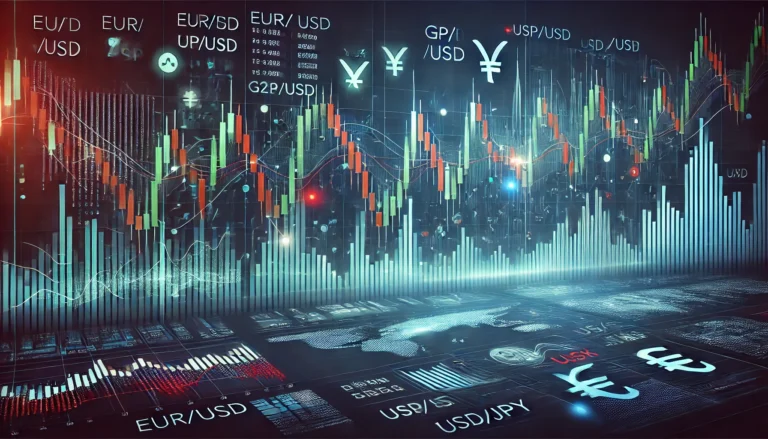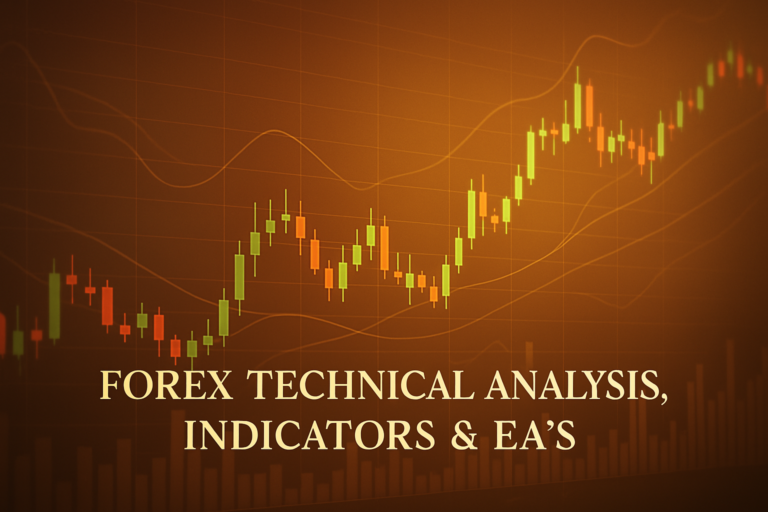
Foreign exchange vs stock market trading involves different strategies and risks. Understanding these differences can enhance your trading success.
Have you ever wondered about the difference between foreign exchange vs stock market trading? These two markets offer unique opportunities and challenges for traders. In the world of Forex trading, understanding these differences is crucial for success. With the right knowledge, you can navigate both markets effectively and make informed trading decisions.
However, many traders, whether beginners or professionals, often struggle to grasp these concepts. They find it challenging to distinguish between the two markets and their dynamics. This confusion can lead to costly mistakes and missed opportunities. Therefore, understanding the nuances of foreign exchange vs stock market trading is essential for anyone looking to thrive in trading.
For instance, in our recent GBPJPY Analysis July 23, 2025, we observed some significant movements that highlight the importance of market analysis. This serves as a perfect example of how Forex trading can offer unique insights compared to stock trading.
Understanding the Foreign Exchange vs Stock Market Trading
The difference between foreign exchange vs stock market trading can be broken down into several key factors. Firstly, the Forex market is decentralized, meaning that trades occur directly between parties, often through brokers. In contrast, stock markets are centralized exchanges where shares of companies are bought and sold. This fundamental difference affects how trades are executed and the level of transparency available to traders.
For example, in Forex trading, you might notice sudden price changes due to global events, such as economic reports or political instability. In stock trading, price fluctuations are often the result of company earnings reports or market sentiment. Understanding these dynamics can help traders make more informed decisions. A trader might experience a sharp decline in a stock’s price after a negative earnings report, while a currency pair may react differently to a similar economic event.
Pro’s and Con’s for Foreign Exchange vs Stock Market Trading
When it comes to foreign exchange vs stock market trading, both markets have their advantages and disadvantages. Here are some key points to consider:
- Liquidity: The Forex market is the most liquid market in the world. This means that you can enter and exit trades quickly without much impact on the price. Conversely, stock markets may have less liquidity, especially for less popular stocks.
- Trading Hours: Forex trading operates 24 hours a day, five days a week. This flexibility allows traders to participate in the market when it suits them. Stock markets, on the other hand, have fixed trading hours.
- Leverage: Forex trading often offers higher leverage, allowing traders to control larger positions with a smaller investment. However, this also increases risk. In stock trading, leverage is generally lower.
- Market Influences: Forex is impacted by global economic factors, while stock prices are influenced by company performance and industry trends. Understanding these influences can help traders anticipate price movements.
To navigate these pros and cons effectively, here are some best practices:
- Stay Educated: Continuously learn about market trends and trading strategies. Knowledge is your best tool.
- Practice Risk Management: Always set stop-loss orders to protect your investment and avoid significant losses.
- Develop a Trading Plan: Create a plan that outlines your goals, strategies, and risk tolerance before entering any trade.
Additionally, if you’re looking to understand how to manage your funds better, you can check out this guide on how to calculate margin.
Frequently Asked Questions
1. What is the main difference between Forex and stock trading?
The main difference lies in the market structure. Forex trading is decentralized, while stock trading occurs on centralized exchanges. This means Forex trades can happen at any time, while stock trades are limited to specific hours.
2. Which market is more volatile, Forex or stock trading?
The Forex market is generally more volatile due to its exposure to global events. Currency values can change rapidly based on economic news, while stocks may fluctuate based on company-specific events.
3. Can I trade Forex with a small investment?
Yes, Forex trading often allows for lower initial investments due to high leverage. However, it’s essential to understand the risks involved, as higher leverage can lead to significant losses.
4. How do I choose between Forex and stock trading?
Your choice depends on your trading style, risk tolerance, and time availability. If you prefer flexibility and quick trades, Forex might be the better option. If you enjoy researching companies, stock trading could be a better fit.
5. Is it easier to make money in Forex or stock trading?
It can vary for each trader. Some find Forex easier due to its liquidity and 24-hour nature, while others prefer the stock market for its familiarity and established companies. It’s essential to choose a market that aligns with your skills and knowledge.
Conclusion
In summary, understanding the differences between foreign exchange vs stock market trading is essential for any trader. By recognizing their unique features and dynamics, you can make better trading decisions. Remember, this issue can be managed with the right knowledge and strategies. Stay informed and keep improving your trading skills!
It’s essential to keep learning and adapting to the ever-changing markets. Your journey in trading can lead to success with the right strategies and mindset!
Recommended Next Steps
To dive deeper into the world of trading, here are some suggested next steps:
- Explore trading strategies specific to Forex and stocks.
- Join online forums or communities to discuss experiences with other traders.
- Consider demo trading to practice strategies without financial risk.
- Stay updated on global economic trends that impact currency values and stock prices.
Looking to stay informed on forex trends? This resource breaks it down well Federal Reserve, Finance Magnates
Expand Your Knowledge
- 📌 Forex Trading Learning Road Map
- 📌 Forex Trading Course with no Fees
- 📌 Forex Trading Issues, Problems, and Solutions
- 📌 Forex Daily Forecast & Live Updates
- 📌 Forex Fundamental & News Analysis: Tomorrow’s Market Movers & Trade Opportunities
- 📌 Forex Education Hub: Learn & Profit
- 📌 Forex Technical Analysis, Indicators & EA’s
Start Trading Today
Ready to take your forex trading to the next level? Open an account with Exness, one of the most trusted platforms in the industry. 👉 Sign Up Now and trade with confidence!
My recommended broker stands out with ultra-low spreads for beginners, instant withdrawals, and zero spread accounts for pro traders.
Trusted since 2008, lightning-fast execution, no hidden fees, and a secure, transparent trading environment—giving you the edge you need to succeed. 🚀
YouTube Video Library: Related Videos
Note: The video above is embedded from YouTube and is the property of its original creator. We do not own or take responsibility for the content or opinions expressed in the video.




